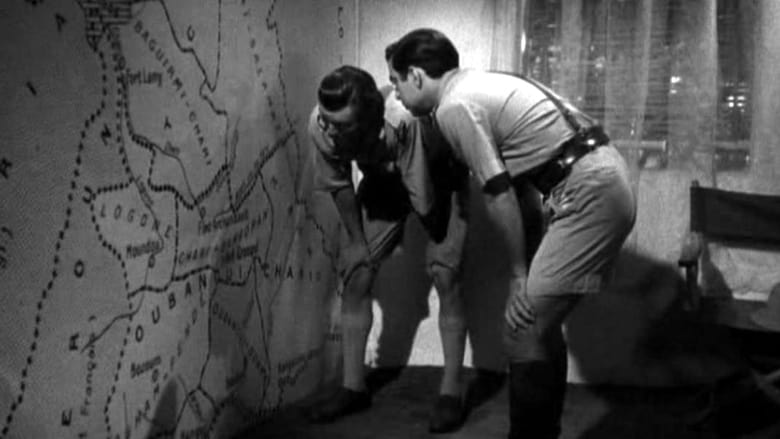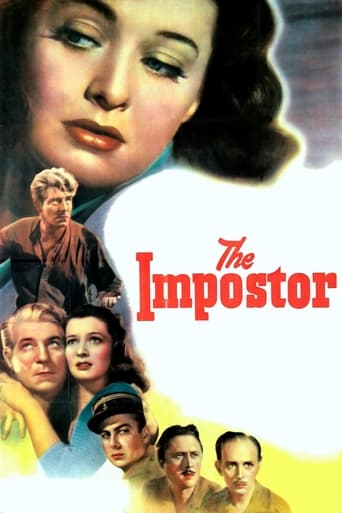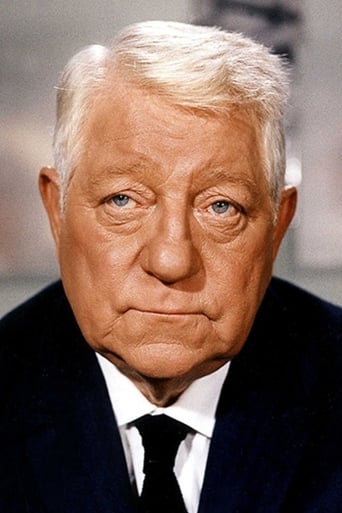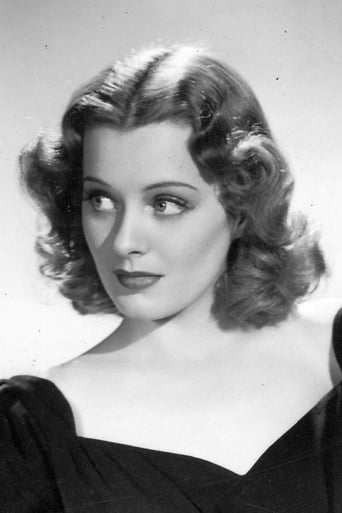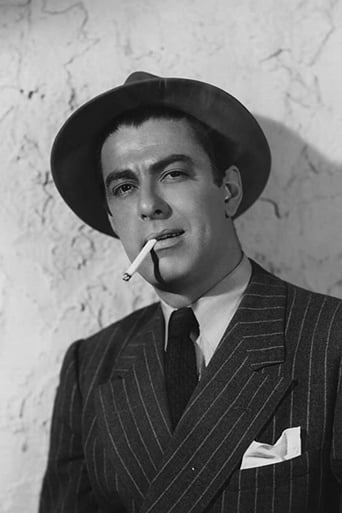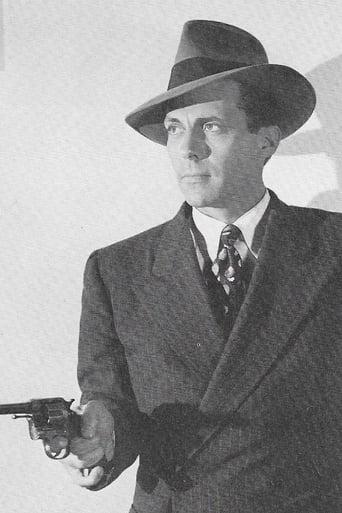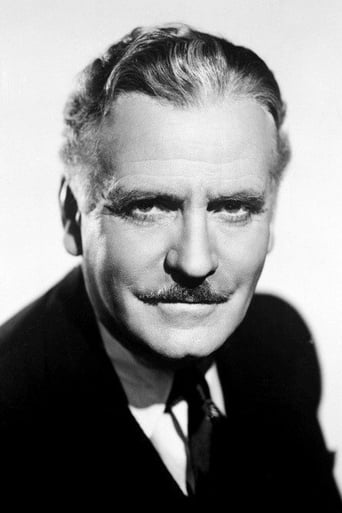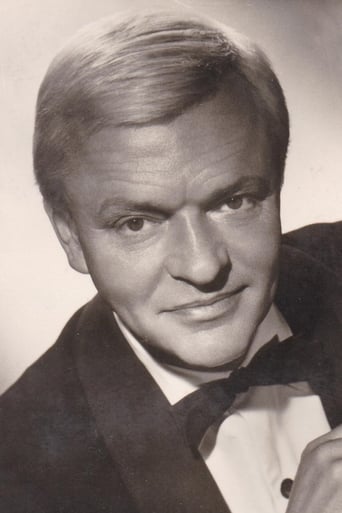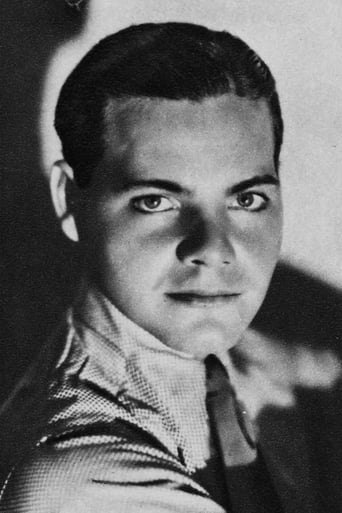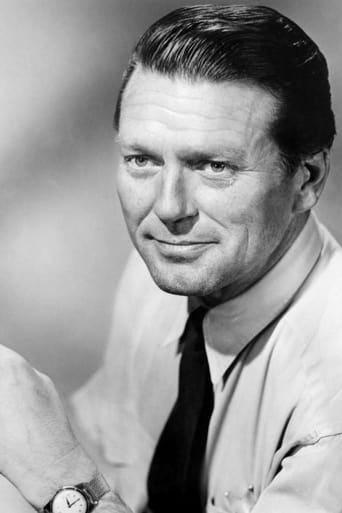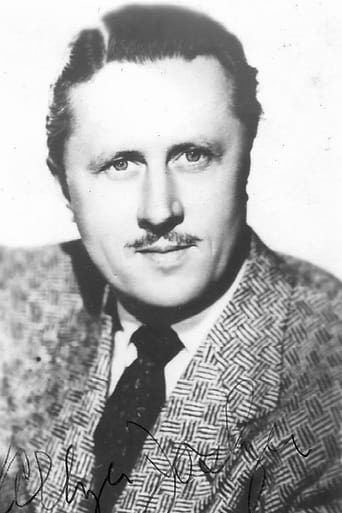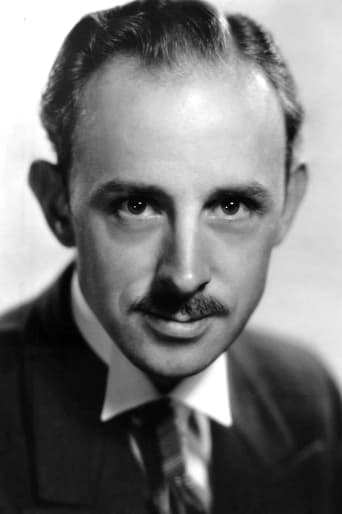The story concerns a condemned murderer named Clement (Jean Gabin), who is "liberated" when the Nazis bomb the French jail that holds him. During his escape, Clement comes across the body of a French soldier; he steals the dead man's uniform and identification papers, then hides from the law by joining the Resistance movement. Clement's new identity and purpose in life reforms him, and in due time he has sacrificed himself in service of his country.
Similar titles
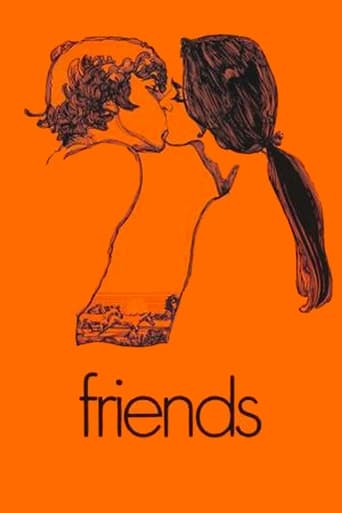

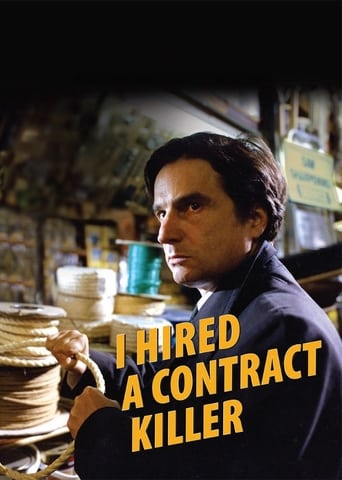
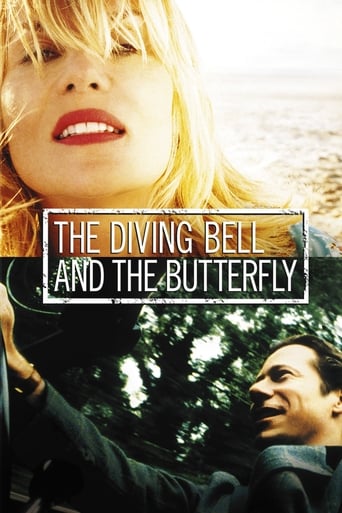

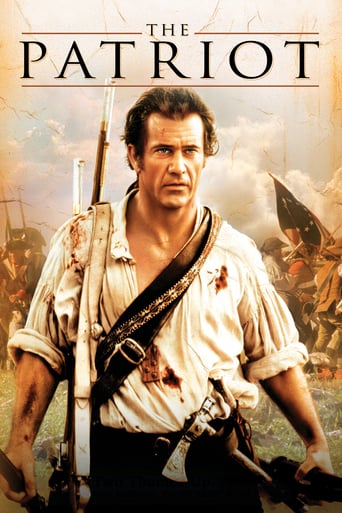
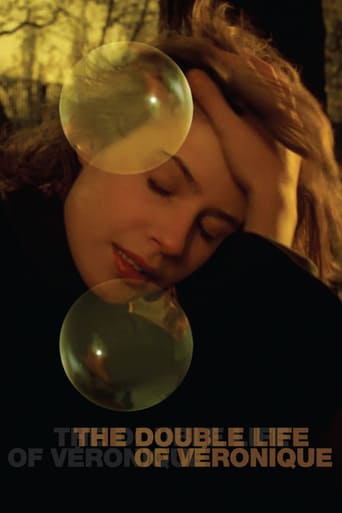
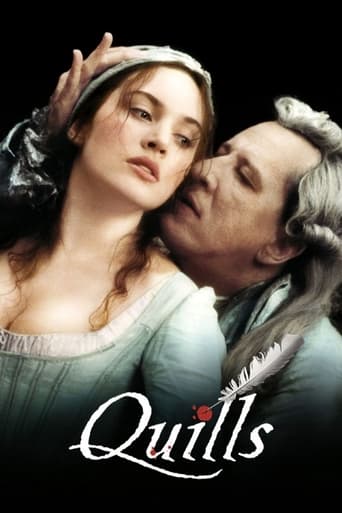
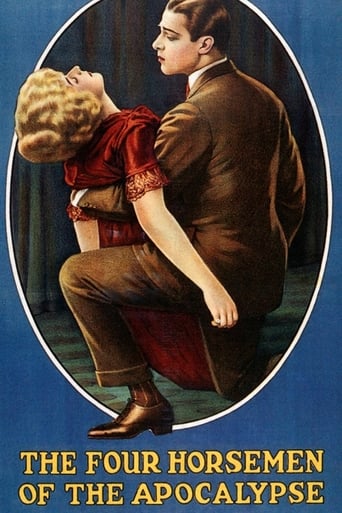

Reviews
Powerful
best movie i've ever seen.
Bad Acting and worse Bad Screenplay
Admirable film.
This is the second of the two films which Jean Gabin made while in exile during the War in America, having escaped from the German occupation of Paris. The first of his films was MOONTIDE (1942, see my review), a film of no merit in itself, but important and interesting because of its casting of Gabin opposite Ida Lupino. This film is much better, though because of the nature of the story, there is no female lead. The film, made in English, is known to the French as L'IMPOSTEUR (THE IMPOSTOR), and the French like to watch it with French subtitles because of the hero-worship there of Jean Gabin. The film was produced and directed by French director Julien Duvivier, who also wrote the original screenplay. Duvivier was also in America at that time to get away from the Nazis. It seems odd that when he returned home after the War his reputation was damaged because he had left. One would think that the collaborators who continued to work in French films while the Nazis were controlling all the film production were the people whose reputations should be ruined, not merely damaged. This shows the hypocrisy of some. Duvivier had worked with Gabin before and was responsible for making him an international star during the 1930s. Duvivier and Gabin worked together again in France after the War, in TWELVE HOURS TO LIVE (aka VOICI LE TEMPS DES ASSASSSINS, 1956). This film has an ingenious story. It concerns a condemned murderer (Gabin) who escapes prison and execution in France because the prison is bombed. Hitching a lift in a truck with French soldiers who are fleeing south, a German fighter plane strafes the truck and kills the soldiers. Gabin escapes, and as he has nothing but the clothes he is wearing, takes the papers of a dead sergeant and dons his uniform, and heads south with a new identity. But he is swept up in the Free French Army and gets onto a boat taking him and other real soldiers to French Equatorial Africa, which is still under Free French control and loyal to de Gaulle. He helps to construct a jungle airfield, and later he fights in Libya where he becomes a hero. He is eventually promoted to Lieutenant. But the question of his identity becomes a real problem when he is awarded a medal for bravery in an earlier action in France, an action carried out by the dead man. Then a woman comes searching for him, and his position becomes shakier and shakier. Will he be unmasked as an impostor? What will become of him? The film was made on a relatively low budget and lacks production values, but because of the good direction and acting, the film is worthwhile. It also gives some useful background on what the Free French were up to during the War, about which too little is known. We are used to patriotic war films in English beating the drums for America and for the British, but here is one beating the drums for the French instead, with a few lines thrown into the dialogue about what good fellows the Americans are, doubtless necessary for a film made in Hollywood. The film is therefore interesting for several reasons, and for those who follow Gabin and Duvivier, a necessity.
It is an odd movie. Gabin is the only French actor in it, the original language is English and apparently it wants to appeal to patriotic sentiments of the French during WW II. Pretty absurd and also a bit tedious, especially if seen by today's audience. And nonetheless The Impostor pretty much lured me into its spell.A French murderer steals the uniform of a French soldier who died in an air raid while fleeing from the invading German troops. As a sergeant he escapes with other soldiers to Aequatorial Africa and there signs up with them to join the Free French forces of general de Gaulle. He thinks this is his best chance of escape. But then moral considerations take the better of him, he decides to stay with the real soldiers.As a small troop (less than 10 men) they are sent to the heart of the jungle to hack an airstrip out of it (or rather supervise native troops doing the hacking I am sorry to say that the movie is blatantly racist, with a rigid racial segregation allowing no real exchange whatsoever). They would much rather like to fight on the front. The tediousness of the life in the jungle far away from home is something like the main issue of the movie and gives it the feel of a story by Joseph Conrad. And the aesthetic level the jungle scenes are marvelous. They must have filmed that somewhere around Los Angeles, but the impression of a deep virgin forest with rays of sunlight filtering through the foliage down on glistening mud is convincingly poetic. Almost all scenes seem to have been filmed somewhere outdoors, African villages and French army camps were recreated in a very unhollywood like, naturalistic fashion. There is even a wild elephant crashing through the brushwood (it's clearly an Indian one, but who cares?). A lot of gauze was used as fly screens etc to great effect.The impostor is eventually found out. Although he reformed and distinguished himself, getting promoted to full lieutenant, he is tried and degraded another great, very detailed scene. He dies in a charge on a German MG nest in the desert, and they apparently set a whole palm grove ablaze for that.It is mainly the strength of the images which make this movie watchable. There are also some fine performances, especially by John Qualen (one of my favorite character actors) who plays a farmer from Normandy in a tropical uniform. Gabin delivers all right. Interesting hairdo. Strange reference to a Chopin waltz which triggers the memory of someone who met the original Gabin character whistling that tune.
If you've seen Raoul Walsh's "Uncertain glory", the resemblance of the beginnings of the two films will strike you.In both work,Errol Flynn (Walsh) and Gabin (Duvivier) are about to be guillotined but a bombing destroys everything,and they are free .So to speak.For France is either occupied (Walsh) or about to be (Duvivier).Most amazing thing,the films were made at the same time,as propaganda movies.To be fair ,one should say that Walsh's work is superior to Duvivier's.Duvivier and Walsh take two divergent ways then.But the subject (and the moral) remains roughly the same: an impostor,a man (both Flynn and Gabin tell it so ) who is not afraid to die ,but who wants to die honorably ,not on a guillotine but while fighting for his country,thus redeeming himself.Duvivier's story is almost a rehashed "Bandera" (1934),but it's not as bad as people generally say.Gabin (what a great idea!) killed a man,but he was so poor,having been brought up in an orphanage,sent to reform school ,blah ,blah,blah,well we know the score!.And as he becomes some talented Mister Ripley in the army,he nonetheless displays bravery, abnegation and sympathy for his mates.The most interesting scenes show Gabin with his pal from Normandy ,who remembers Christmases with his wife and his sister-in law Jeanne-Marie.The soundtrack includes many military marches("La Marseillaise" "Marche Lorraine" "Chant Du Départ" ). De Gaulle's speech (France has lost a battle,but France has not lost the war...) in English loses 90% of its appeal.Duvivier's last American film ,it's perhaps his least interesting,but anyone interested in Duvivier's work should watch it once.
Julien Duvivier arguably made a star out of Jean Gabin via La Bandera in 1934 - they had worked together previously when Gabin appeared in a small role in Maria Chapeldaine and would do so again profitably in La Belle Epoque, Pepe Le Moko and Voice les temps des assassins - and in 1944 when both found themselves in America they teamed up yet again for this philosophical moralist entry in which Gabin is literally minutes away from the guillotine on June 14, 1940 when, in the wake of Paris falling to the German invaders, the prison is bombed by the Luftwaffe allowing Gabin to escape. Hitching a ride toward Bordeaux with a group of French soldiers he has further luck when the jeep is strafed and he emerges unharmed. At this point, discretion being the better part of valour, he steals the uniform and identity of a dead sergeant as a means to an end but as a result of various twists of fate he winds up as part of a company shipped to Africa where he rises through the ranks until he becomes a Lieutenant having acquired along the way the love, admiration and respect of the men in his outfit. The phrase 'motley crew' has seldom been better employed as Gabin finds himself in close proximity with people like John Qualen (in arguably his biggest role), Richard Whorf, Milburn Stone, Allen Joslyn, Peter Van Eyck and Charles McGraw. Digression: Large oaks from little acorns grow; in the fullness of time, the very next year, in fact, Richard Whorf turned from acting to directing with the Jerome Kern biopic Til The Clouds Roll By, and in the next decade he directed 18 episodes of Gunsmoke in which his old army buddy Milburn Stone had a featured role). In a mostly male cast Ellen Drew has a cameo as the fiancée of the dead man whose identity has been assumed by Gabin. In a time of war the morality must have been intriguing; Gabin is an orphan, a loner, a self-confessed murderer, who undergoes redemption after finding human warmth via his platoon; the real sergeant was a decorated hero but Gabin ultimately enhances the name of the dead man via his own valor, a point made by his defense counsel when he is exposed and stands trial. Two years later in England Basil Dearden would take the basic premise of one man stealing another's identity in the midst of a war and put spin on it in The Captive Heart, in which Michael Redgrave, having stolen an identity, is obliged to write letters to the dead man's wife back in England, the twist is that in this case the dead man WAS a bastard rather than a hero, and the wife who was initially bemused by his change of heart, falls in love with the man she thinks is her husband. This is a valuable movie in Duvivier's oeuvre and a DVD version is long overdue.
Top Streaming Movies











